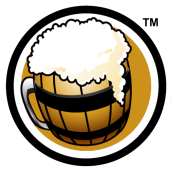Hops
|
Amount
|
Variety
|
Cost
|
Type
|
AA
|
Use
|
Time
|
IBU
|
Bill %
|
|
35 g |
Fuggles35 g Fuggles Hops |
|
Pellet |
4.5 |
Boil
|
60 min |
21.91 |
63.6% |
|
10 g |
Fuggles10 g Fuggles Hops |
|
Pellet |
4.5 |
Boil
|
20 min |
3.79 |
18.2% |
|
10 g |
Fuggles10 g Fuggles Hops |
|
Pellet |
4.5 |
Whirlpool
|
5 min |
1.07 |
18.2% |
|
55 g
/ $ 0.00
|
Hops Summary
|
Amount
|
Variety
|
Cost
|
IBU
|
Bill %
|
|
55 g |
Fuggles (Pellet) 55 g Fuggles (Pellet) Hops |
|
26.77 |
100% |
|
55 g
/ $ 0.00
|
Mash Guidelines
|
Amount
|
Description
|
Type
|
Start Temp
|
Target Temp
|
Time
|
|
19 L |
|
Infusion |
-- |
67 °C |
60 min |
|
8 L |
|
Sparge |
90 °C |
78 °C |
5 min |
Starting Mash Thickness:
3 L/kg
|
Target Water Profile
Balanced Profile
Notes
Fermentation temperatur is 20 degrees till 50% attenuasjon. Then temperatur is to be decreased to 17 degrees into end of fermantation. When the beer has reached FG. Temperatur is decreased again to 6 degrees till the beer is ready.
Gassy beers are much more difficult to drink in quantity and proper carbonation level is even more important for low gravity beers like bitter. Too much carbonation in a low gravity beer results in a harsh, carbonic bite. While carbonation is important to filling out the mouthfeel of a beer, and it helps drive aromas up to the nose, too much carbonation can make a small beer seem thin. Target a low level of carbonation, around 1.5 volumes of CO2 for bottled beer and 1 volume of CO2 for cask conditioned beer. A typical American pale ale is carbonated to around 2.5 volumes of CO2, so cut your priming sugar in half at bottling time and you’ll be close to the right level of
carbonation.

Last Updated and Sharing

- Public: Yup, Shared
- Last Updated: 2019-12-28 14:46 UTC
For quick copying and pasting to a text based forum or email.
Click the Download as HTML file button below.
Recipe costs can be adjusted by changing the batch size. They won't be saved but will give you an idea of costs if your final yield was different.
|
Cost $ |
Cost % |
| Fermentables |
$ |
|
Steeping Grains
(Extract Only) |
$ |
|
| Hops |
$ |
|
| Yeast |
$ |
|
| Other |
$ |
|
| Cost Per Barrel |
$ 0.00 |
|
| Cost Per Pint |
$ 0.00 |
|
| Total Cost |
$ 0.00 |
|
Discussion about this recipe:
